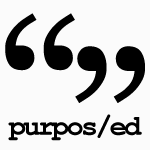My two biggest insights from last year
Last year, the pandemic was more ‘annoying’ to me and my family than damaging to our health or finances. So, if there’s one thing that 2020 showed me, it was my privilege.
I turned 40 in December, which means I’m now inescapably middle-aged. I’m also a straight, white, male. Thankfully, somewhat unrelated to the pandemic, I also spent 2020 learning a bunch of things about myself and how I relate to others. This happened primarily through CBT, research and learning around the Black Lives Matter movement, and doing some work around Nonviolent Communication.
My two biggest takeaways from the above were:
- I don’t need to have an opinion about everything. As Marcus Aurelius said, “We have the power to hold no opinion about a thing and to not let it upset our state of mind—for things have no natural power to shape our judgments.”
- I should stick to only discussing my own experiences and context. I have no idea of the internal world of others, and how things which seem major/minor to me might be minor/major to them.
I guess this is a lo-fi version of Hume’s fork. In other words, there are statements that can be made about ideas (which are either true or false by definition) and statements that can be made about the world (which are true or false based on experience).
Over the last six months, I feel that there’s been a shift in my writing here since starting the #100DaysToOffload challenge. This has been incredibly useful in weaning me off assertions meant to provoke a response from others towards more introspection and self-documentation.
This post is Day 80 of my #100DaysToOffload challenge. Want to get involved? Find out more at 100daystooffload.com.



